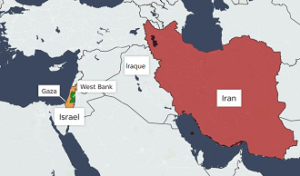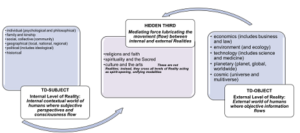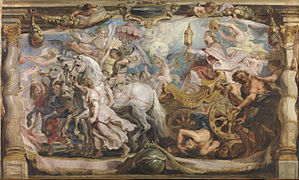
Arquivo para a ‘Information Science’ Categoria
A piece in the chess of war
Since the fall of the monarchy in Iran, at the time Shah Reza Pahlavi, who was a traditional ally of the USA, the Islamic republic of Iran began to have hostility with the USA, which imposed sanctions because of the processing of uranium essential for nuclear bombs, making causing Iran to seek support and form alliances with Russia.
time Shah Reza Pahlavi, who was a traditional ally of the USA, the Islamic republic of Iran began to have hostility with the USA, which imposed sanctions because of the processing of uranium essential for nuclear bombs, making causing Iran to seek support and form alliances with Russia.
In 1st. April this year, Israel launched an attack on Syria (not assumed), killing Iranian generals, who have since promised retaliation and recently attacked Israel’s territory with drones and missiles, according to Rear Admiral Daniel Hagari, Israeli military spokesman: “it will launched more than 300 threats, and 99% were intercepted”, and concluded: “this is a success”.
Shortly before the news of the launch this Saturday (13/04), Israeli Prime Minister Benjamin Netanyahu said that “the defensive systems” are working, and that the IDF (Israel Defense Force), in a reprisal that was already As expected, the bombers continued yesterday (04/14).
As there are strong connections with Hezbollah and the Houthis to the south in Yemen and Hezbollah to the north in Lebanon there is also news of attacks on Israel, both the Israeli military command, the G7 and the UN security council have already called a meeting yesterday.
Italy and Germany have already spoken out against Iran, condemning the attacks, the USA and France helped intercept the missiles (it is reported that Jordan also helped the defense), so Iran is isolated in the West.
The objective at the moment is to prevent a larger scale attack on Iran, which would trigger an escalation of war in the region, Netanyahu must attack some targeted targets in Iran.
Russia has not commented so far, but it is a traditional ally of Iran, and the drones used in the attack on Israel are the same type as those used in the war in Ukraine.
Russian attacks continue to escalate in Ukraine with the main objective of depleting the country’s energy sources, the progressive fragility of the defense of Ukraine’s military forces makes the situation in the country, and to a certain extent in the NATO countries, quite dramatic.
Peace is always possible, what ethical forces call responsibility could play a decisive role in decision-making, as the leaders involved in the conflict increasingly seem not to understand the gravity of a conflict in the midst of a civilizational crisis.
After World War II, the forces in conflict understood the need for peace, now the worsening of the crisis, paradoxical as it may be, can make leaders call for peace.
Happiness, fear and serenity
Among the main guests of “Fronteiras do Pensamento” is Luc Ferry, still little known in Brazil, and already with a certain exponent in Europe he also spoke about fear, one of our themes this week.
Pensamento” is Luc Ferry, still little known in Brazil, and already with a certain exponent in Europe he also spoke about fear, one of our themes this week.
He defends a secular spirituality, which for me and other Christians is fragile, but some of his reasoning and comments are important, for example about happiness: “… it does not exist, we have moments of joy, but there is no permanent state of satisfaction… What we can hope for is serenity, something completely different. Serenity can only be achieved by overcoming fear” (interview with Fronteiras do Pensamento).
It classifies fear into three types: shyness (arises depending on the environment and society), phobia (fear of the dark, insects, being trapped in an elevator), in our view it is the only one that really encompasses itself within what the author works mainly: psychology, and the third is the fear of death (of the people we love and of our own death), in our view this necessarily refers to the finitude of life and man, it is only possible to transcend with a spirituality not secular.
He cites an important author, Hans Jonas, and his book The Principle of Responsibility, where there is a chapter called Heuristics of Fear, described as a positive and useful passion.
Through reading this author gives a positive reading: “Ecology inverts this philosophical tradition by maintaining that fear is the beginning of a new wisdom and that, thanks to fear, human beings will become aware of the dangers that exist on the planet. Fear is no longer seen as something childish, but as the first step on the path to wisdom.”
If we are not afraid of war, of an atomic catastrophe, of a desertified planet, of the hunger already present in poor people and countries, we will not have social responsibility, most of us (who do not experience these fears) imagine that they will never be affected, however it’s not like this.
He recognizes that religion also addresses this issue, but his secular spirituality states that: “except that the great philosophies are doctrines of salvation without God and without faith”, so the question remains how to overcome finitude and death, and whether the resurrection of Jesus is true?
Of course it is a question based on faith, but the men of that time saw, witnessed and gave testimony, so why not bet on faith as Pascal proposed, what would you lose with this “bet”, of course it is important to go further, but it could be a first step.
What do I gain today with this bet, is a simple answer, more peace and more conviction of the possibility of peace, of not needing to destroy to discover that we chose death and fear?
Luc Ferry – A boa vida – YouTube
Fear, society and hope
Fear is not something of these days and perhaps of contemporary society, it is not, however, something transitory or even impossible to be overcome.
of contemporary society, it is not, however, something transitory or even impossible to be overcome.
In different societies and thoughts they were elaborated, in ancient classical thought
It is a mistake to think that tiredness, pressure and fear are current problems, they have been present in our society for some time: competition and the demand for perfection are present in the history of humanity.
Heidegger (1889-1976) stated this way (not literal here): fear invites us
living in impropriety, we don’t attribute meaning, we let others and circumstances attribute it, we alienate ourselves from ourselves, we always live on the run, with our schedules full of distractions that occupy us.
For some, it is a more phenomenological and practical way of seeing fear, as Pascal and Kierkegaard would have a more theological fear, but there is a theological mistake “fear of God” is not necessarily a fear, but rather respect, after all the first Christian commandment is to love God above all things.
So seeing fear as a “thing”, the phenomenological sense of Heidegger and others does not suppress the theological vision, a thought limited to man will also limit his existence to this world being a limited intellect.
Kierkegaard’s work “The Concept of Anguish”, remembering that we made a post about this, has a demand for questions, many are asked in relation to the “fear of death”, which in a certain sense is a fragile theological issue, whereas Pascal’s work There is also a tendency to “take a chance on God”, when thinking about the soul.
The philosopher says: “The immortality of the soul is something that worries us so much, that touches us so deeply, that we must have lost all feeling to remain indifferent before it.”, he does not, therefore, affirm its immortality, but rather in the face of doubt.
For Heidegger, it is more than a psychological and ontic phenomenon; it has an ontological dimension, as it refers us to the totality of existence as being-in-the-world, but anguish man only exists if he can have an understanding of Being, although he does not say so, it is a reality beyond “thing”, Hannah Arendt, his disciple, will say beyond the vitta activa.
The contemplative vitta (see also Byung-Chul Han) leads us to awareness of the Being, it is a path to overcoming fear and anguish.
Eminent danger of war and hope for peace
A drone attack on the Zaporizhzhia plant last week triggered an alert from Russia that promptly denounced the danger and consequences of a nuclear disaster would be dire.
week triggered an alert from Russia that promptly denounced the danger and consequences of a nuclear disaster would be dire.
It was not clear exactly what weapon was used against the nuclear plant (photo), only that they were drones and that one had been detonated on site. The International Atomic Energy Agency (IAEA), which has experts on site, said only that the information was “consistent” with the entity’s observations, that is, a drone had exploded near the Plant.
International analysts still see the conflict as unlikely due to the catastrophic risk due to the possibility of using nuclear weapons, in addition to conventional combat, the use of cyber and hybrid attacks would be put into motion, initially in Eastern Europe, but with the risk of expanding to Europe and other continents.
Even though NATO holds a significant advantage in both geopolitics, Finland and Sweden joined NATO and Hungary, which sought a position of neutrality, is now strengthened with a military technology agreement made with Sweden, which facilitated its entry into NATO.
Russia, however, has military capabilities combined with economic resources and the modernization of its military apparatus, in addition to a support agreement with China and North Korea, so maintaining peace and preventing conflicts must be done through constant dialogue, but Russian diplomacy continues to play hard and says that dialogue with NATO is “zero”.
Both Russian Foreign Minister Sergey Lavrov and Kremlin spokesman Dimitry Peskov make statements that imply that the conflict with NATO is already underway, diplomatic strategy or pure rhetoric, the fact that tension levels are rising .
NATO responds with military exercises and troop movements on the borders, in January an exercise involved 90 thousand soldiers, new training was announced by NATO commanding general, Christopher Cavoli, the operation called Defensor Firme 24 (Steadfast Defender 24) had already been carried out in other years, but now it takes place amid an intensification of bombings against Kiev.
The hope is that the balance is fragile and both sides know this, and the risk of war would be catastrophic, even though analysts avoid saying that there would be limits on actions.
Quantum physics, occult third and spirituality
Nicolescu Barsarab, in addition to formulating the theory of the included third, substantiating through quantum physics that Aristotle’s principle of the excluded third, there is A or non-A being exclusive, however quantum physics had already revealed a third state T, as a combination between the state of “existence” and “non-existence” as a physical state, this Being existing or not as a third state allows us to speak of a Transdisciplinary Ontology.
the theory of the included third, substantiating through quantum physics that Aristotle’s principle of the excluded third, there is A or non-A being exclusive, however quantum physics had already revealed a third state T, as a combination between the state of “existence” and “non-existence” as a physical state, this Being existing or not as a third state allows us to speak of a Transdisciplinary Ontology.
Succinctly, Nicolescu (2002) developed is that instead of one reality waiting to be discovered using the scientific method, there are multiple levels of Reality (he capitalizes Reality and uses the letter T for transdisciplinarity) organized into two levels.
One level concerns Subjective Reality (TD-Subject), so called because it deals with the internal flow of perspectives and consciousness. Included are individual psychology and philosophy, family, community, society, history and political ideologies. The other level concerns Objective Reality (TD-Object), so called because it deals with the external flow of information, facts, statistics and empirical evidence.
Examples include economics (business and law), technology, science and medicine, ecology and environment, planetary (worldwide and global), and cosmic and universe (Nicolescu, 2002, 2016).
Each level of Reality is different, but “each level is what it is because all levels exist at the same level”, the existence of a single level of reality, the disciplinary closure of knowledge, Edgar Morin also warns about this, creates a new type of obscurantism, of disciplinary closure in areas of knowledge.
Arrábida Transdisciplinarity Charter says in its preamble: “Considering that the contemporary rupture between an increasingly cumulative knowledge and an increasingly impoverished inner being leads to the rise of a new obscurantism, whose consequences, on the individual and social level, are incalculable ”, and says in his third article: “Transdisciplinarity is complementary to the disciplinary approach; it makes new data emerge from the confrontation of the disciplines that articulate them together; offers us a new vision of the nature of reality” (Arrábida, 2014).
The opening to the subject is not just about idealistic subjectivity, it is the opening to Being itself and what Transdisciplinary Ontology proposes is to see it in the complexity that is revealed.
Nicolescu, B. (2002) Manifesto of transdisciplinarity. New York, NY: SUNY Press.
Nicolescu, B. (2016) The Hidden Third [W. Garvin, Trans.]. New York, NY: Quantum Prose, 2016.
Freitas, L., Morin, E., Nicolescu, B. (1994) Portugal, Convento da Arrábida, november, 16, 1994.
Pain and the Palliative Society
By reading several authors, but mainly by understanding precisely the “pains” of modernity, Byung Chul Han wrote the Paleative Society: pain Today (Han, 2021) in which he decrees: “Pain is now a meaningless evil, which must be combated with painkillers. As a mere bodily affliction, it falls entirely outside the symbolic order.” (HAN, 2021, p. 41).
understanding precisely the “pains” of modernity, Byung Chul Han wrote the Paleative Society: pain Today (Han, 2021) in which he decrees: “Pain is now a meaningless evil, which must be combated with painkillers. As a mere bodily affliction, it falls entirely outside the symbolic order.” (HAN, 2021, p. 41).
Among several authors, it is from Paul Valéry in his book and character Monsieur Teste, who embodies the modern and sensitive man who as meaningless and pure “bodily affliction”, “monsieur Teste remains silent in the face of pain. The pain steals his speech” (HAN, 2021, p. 43).
He will place the Christian mystic Teresa D’Ávila in contrast to this character, as a kind of counterfigure, “in her the pain is extremely eloquent. With pain begins the narrative. The Christian narrative verbalizes pain and also transforms the body of the mystic into a stage… it deepens the relationship with God… it produces an intimacy, an intensity.” (p. 44).
Freud also claims, “pain is a symptom that indicates a blockage in a person’s history. The patient, because of his block, is not in a position to move forward in the story” (p. 45).
Being a mere “bodily affliction”, pain became a thing, lost an ontological and in a certain way “eschatological” meaning (because it has a history with a beginning and an end), “meaningless pain is possible only in a bare life emptied of meaning , which no longer narrates.” (p. 46).
Modern man’s denial of the cross is not just contempt for the Other, it is the misunderstanding of its eschatological aspect, pain has entered our lives and will last until we can understand its meaning of “liberation”, of “purging” our evils. that are in our history, that are our sins, war is the misunderstanding of pain, the Other is eliminated as being to blame for our pain, of which each one of us is to blame.
Injustices have their own regulatory means, but marginality, crime, which arise in the midst of poverty, social difficulties are difficulties that deal with pain, there is always a way to remake a story, to start a life over, to eliminate it it’s the opposite.
Injustices have their own regulatory means, but marginality, crime, which arise in the midst of poverty, social difficulties are difficulties that deal with pain, there is always a way to remake a story, to start a life over, to eliminate it it’s the opposite.
The cross is the deepest meaning of what ails man, and from which he can free himself, hide or run away from the problem, which generally leads to greater pain: alcoholism, drugs, prostitution and what is already an evil of modern man: corruption at various levels.
The cross, the pride of Christians and the scandal of Gentiles, is also biblical: “he who wants to follow me, take up his cross and follow me (Mc 8, 34), a metaphor for victory and not defeat.
Han, Byung-Chul. (2021) The palliative Society: Pain Today. Transl. Daniel Steuer. USA: Polity Press.
The light and the truth
There is a single and true light, although we know that light can unfold into various colors that we see from red to violent, and that we do not see as infrared and ultraviolet.
know that light can unfold into various colors that we see from red to violent, and that we do not see as infrared and ultraviolet.
We are increasingly getting closer to the idea that the beginning of the universe had something like light, today according to Standard Physics Theory, the photon was already theorized by Einstein as particles or small “packages” that transport the energy contained in electromagnetic radiation, photons at rest they have zero mass.
Thus, the light that emanates from the origin of the Universe, although not confused with its intention (to radiate light), is at the origin of all electromagnetic radiation from the Big Bang.
The Neoplatonists, like Plotinus (205 – 270), believed in monism and in this radiation of light, there is a one or a god (it was not the Christian God) from which emanates a divine source that radiates throughout all creation, in this one light that Augustine of Hippo will rely on denying the Manichaean dualism that he had previously believed in and from there his turn towards Christianity will take place.
Plotinus’ texts were compiled by his disciple Porphyry and written in the work the Six Enneads (actually nine parts, as ennea in Greek is 9), in which the question of the union of the soul and the intellect stands out, it is based on this idea that the Truth dwells in man.
Thus the soul of the world proceeds from a creative power (not from power, as it does not define it), contemplating the Nous and multiplying itself in all the particular beings of the sensible world, without dividing itself (this is the interpretation of Fritz- Peter Hager in his 1962 book).
The truth thus dwells in the soul and interior of each man, it is this interiority that some critics define as the idealism or intimacy of the Neoplatonists, but today there are several works on the issue of the Contemplative Vitta, Hannah Arendt and Byung Chul Han remember it, but other authors have already started to mention Barthes’ Rumor of the Language mentioned in the previous post.
For Christians, this manifestation of truth occurs ontologically in the Incarnation, Passion and death of Jesus, death because it is part of human life and should be lived as an “Easter” passage that opens eternal life to men, without this passage life fullness is not realized and we perish as matter, this aspect is also problematized by Plotinus.
In the photo, Peter Paul Rubens’ work on Saint Augustine’s Anti-Milleranism, which did not accept the literal reading of Revelation 20:1-10.
Plotinus, Enéadas, (2021) transl. by José Seabra Filho and Juvino Alves Maia Junior, Brazil: Editora Nova Acropole (volume 6 was published this year, completing the work).
Augustine, Saint. (1999). A cidade de Deus (The city of God), trans. Oscar Paes Leme. Brazil, Petrópolis, Editora Vozes.
Silence and the resistance of the spirit
War is noisy not only in weapons and bombs, but mainly in the chatter it generates in which it is impossible to have serenity, think and dialogue; the noisy aspect is a fundamental part of the insanity it represents.
bombs, but mainly in the chatter it generates in which it is impossible to have serenity, think and dialogue; the noisy aspect is a fundamental part of the insanity it represents.
The resistance of the spirit, we are following Edgar Morin’s line, is the possible “weapon” at this moment and perhaps in even worse futures, it means, in many moments, remaining silent, making a silence so profound that it questions the Other who does not give up on argue your reasons for war.
In the Plotinus philosophy, which deeply influenced Saint Augustine, although they are different thinkers, one Christian and the other just Stoic, silence is a stage of deep knowledge of reality, of the one, unity that encompasses everything without leaving itself.
For him when an aspirant to truth (which is truth in fact, not rational logic), he has to have the experience of unity, this experience is total and silent.
The Brazilian philosopher Giacóia Junior seeks in Espinoza’s quote to reflect on this perspective of the relationship between noise and silence when he states that “certainly the fate of humanity would be happier if it were equally within man’s power to both speak and remain silent. But experience teaches sufficiently and superabundantly that nothing is less in the power of men than their language (…) (cf. GIACOIA JUNIOR, 2014, P. 79).
To be faced with silence is to be faced with truth, and if language is the home of being, it is worth remembering that the Word became flesh (John 1:1) if it is not accepted in the biblical sense, it can be thought of as an ontogenic or Phylogenic, as Barthes states in his book The Rumor of Language, states that: “it is language that teaches the definition of man” and that it cannot be considered “a simple instrument, utilitarian or decorative, of thought. Man does not pre-exist language, neither phylogenetically nor ontogenetically” (BARTHES, 1988, p.185).
Thus truth is a Being, language is the dwelling of Being and silence is its apex.
BARTHES, R. 1998. O Rumor da língua (The Rumor of Language). Brazil, São Paulo: Brasiliense.
GIACOIA JUNIOR, O. (2014) Por mais horas silenciosas (For quieter hours”)in: NOVAES, Mutações. Brazil, São Paulo: Ed. SESC SP.
Truth and good works
There is no ontological truth where the unveiling of being does not occur, and this depends on its deeper realization in contact with its essence and must bear fruit for life, for personal and social well-being and for those who believe for an eternity.
of being does not occur, and this depends on its deeper realization in contact with its essence and must bear fruit for life, for personal and social well-being and for those who believe for an eternity.
Sophists in ancient times created truths that could even be logical, but the objective was to gain power and benefit from those who had wealth and influence, and this has not been eliminated from everyday life until today, a large part of politics is the negotiation of public goods, fraud and for this they use non-truth, and this is not the monopoly of one group.
There is no way to maintain this logic without authoritarianism, the restriction of freedom and silencing the voices of those who suffer from greed for power and wealth, a large part of the current crisis comes from these values, even if they blame the media, they are also under control of these powers.
The media follow the ontic logic in the ontological difference, we briefly develop this issue of the way Heidegger and other followers of the different ontological currents see it, in the scope of interpretation and dialogue the logic cannot be ontic, it must follow the ontological truth that follows from fusion of horizons in the hermeneutic circle (see previous post).
Dualism and polarization follow the ontic truth, blaming the media that do nothing that they do not have under control in some way, which could even be algorithms, man himself, thus the dual ontic logic used is instrumental and in a certain way sophistical because it aims the power.
On Sunday, Holy Week begins for Christians, the ontological truth that was manifested as being in the person of Jesus had to be destroyed by the discourse of power, even the religious power of the time that could not believe that truth is the logic of Being and man, when he manifested his good works, almost always confronted power.
It is necessary to go against the current to reverse the logic of ease, of easy money through corruption, of power for power’s sake and of disservice to society.
Ontological difference and hermeneutic circle
Before the concept developed by Hans George Gadamer, dialogue in Heidegger’s hermeneutic circle seemed to be built on idealist foundations, although it was not exactly this, as knowledge in hermeneutics does not occur through the revelation of the object to the subject, as was seen by Kant, nor is it a mere projection of the object onto the object, it is in fact an “appearance” in dogmatic basis.
George Gadamer, dialogue in Heidegger’s hermeneutic circle seemed to be built on idealist foundations, although it was not exactly this, as knowledge in hermeneutics does not occur through the revelation of the object to the subject, as was seen by Kant, nor is it a mere projection of the object onto the object, it is in fact an “appearance” in dogmatic basis.
Subject and object have their own horizons, the ontological difference explains them, although both are endowed with historicity, the ontic reality as explained in previous posts has a logical truth, in it there is a critique and overcoming of Husserl’s subjectivist (objectivist) phenomenology of transcendental, so idealism has already been overcome there.
Thus, Heidegger’s fundamental ontology gained prominence in the question of the meaning of being is posed as a privileged question, so the being of beings does not “is” in itself another being (Heidegger, 2002, p. 32), like Dasein ( being-there, pre-sentence) is the privileged being that understands being and has access to beings, it is part and essential condition of the human being.
Said by Heidegger: “this being that each of us is and that, among others, has in its being the possibility of questioning, we designate it with the term pre-sense.” (Heidegger, 2002, p. 33), but it is not subjective in the sense of being (entity), this Subject and object have their own horizons, the ontological difference explains them, although both are endowed with historicity, the ontic reality as explained in previous posts has a logical truth, in it there is a critique and overcoming of Husserl’s subjectivist (objectivist) phenomenology of transcendental, so idealism has already been overcome there.
Thus, Heidegger’s fundamental ontology gained prominence in the question of the meaning of being is posed as a privileged question, so the being of beings does not “is” in itself another being (Heidegger, 2002, p. 32), like Dasein ( being-there, pre-sentence) is the privileged being that understands being and has access to beings, it is part and essential condition of the human being.
Said by Heidegger: “this being that each of us is and that, among others, has in its being the possibility of questioning, we designate it with the term pre-sense.” (Heidegger, 2002, p. 33), but it is not subjective in the sense of being (entity), this The opening of being-there, that is, the being of this being-there is concern (cure, sorge), it is a light that gives clarity to presence, that is, that which makes it “open” and also “clear” For yourself.
It is the cure that founds every opening of the pre-sentence and the temporality that originally illuminates it. Heidegger states that only starting from the rooting of the pre-sentence in temporality is it possible to penetrate the existential possibility of the phenomenon, being-in-the-world, which, in the beginning from the analysis of presence, it became known as a fundamental constitution (HEIDEGGER, 2002, p. 150).
Gadamer, Hans-Georg. (2002) Truth and Method II: Complements and Index. Translated by Enio Paulo Giachini. Brazil, Petrópolis, 2002.
Heidegger, Martin. (2002) Being and Time: Part I, Translated by Marcia Sá Cavalcante Schuback. 12th ed. Brazil, Petrópolis: Vozes.

